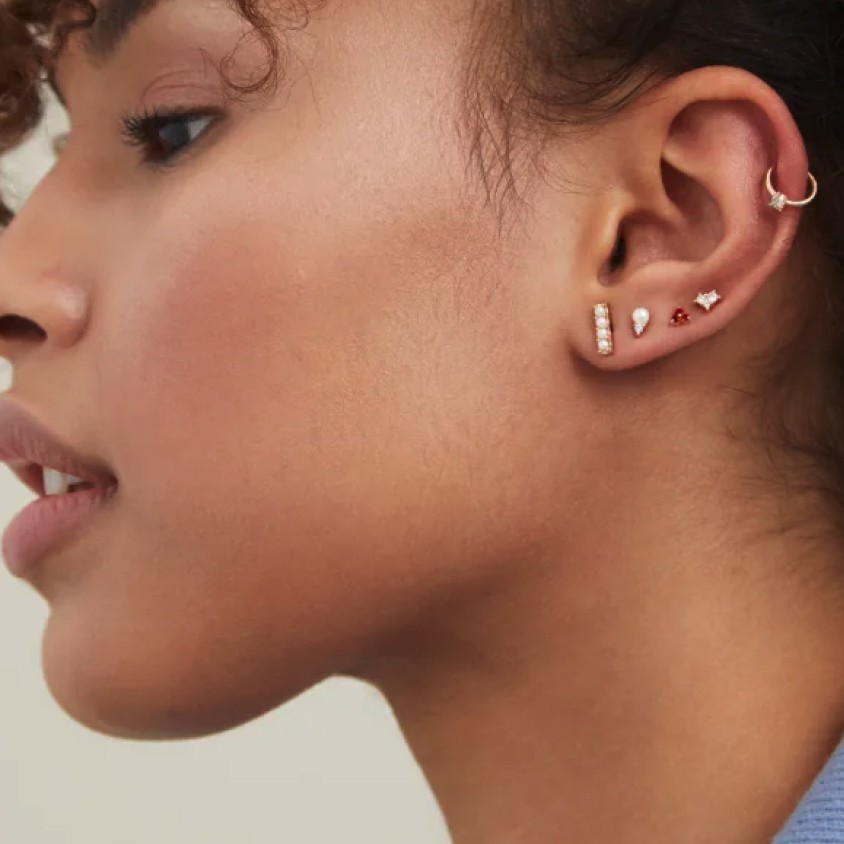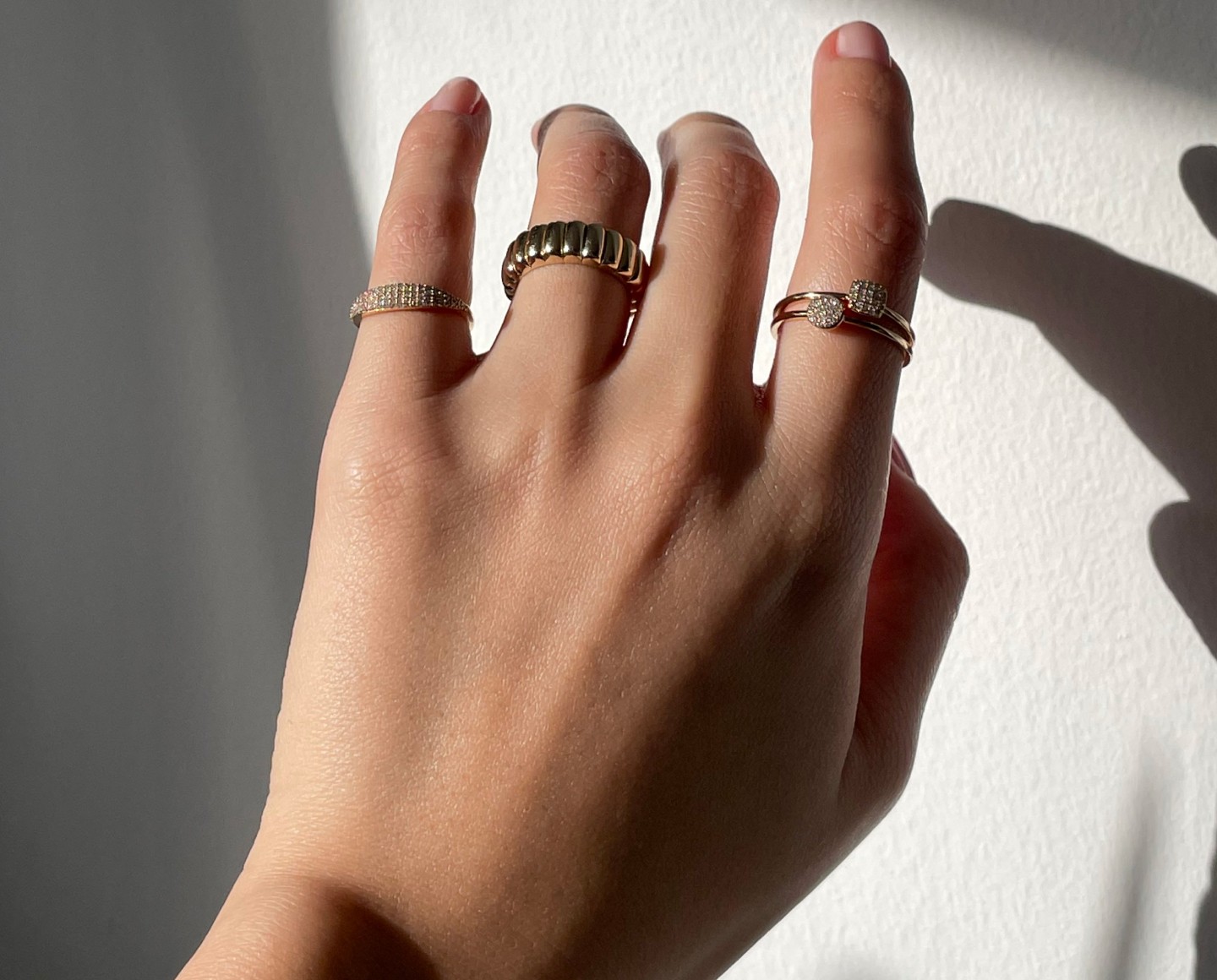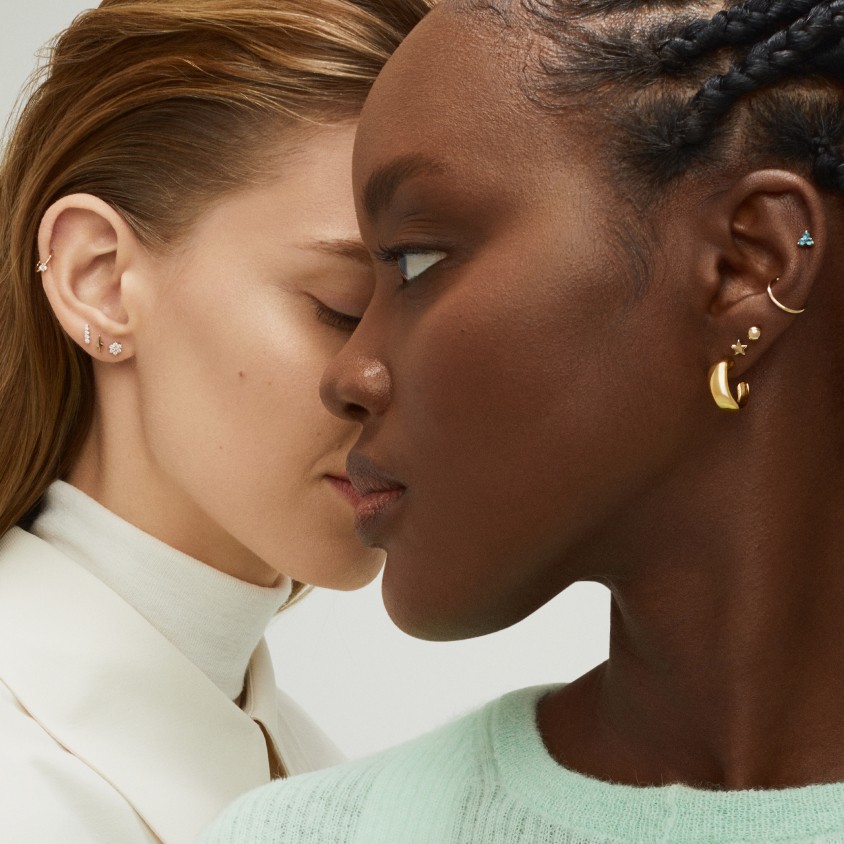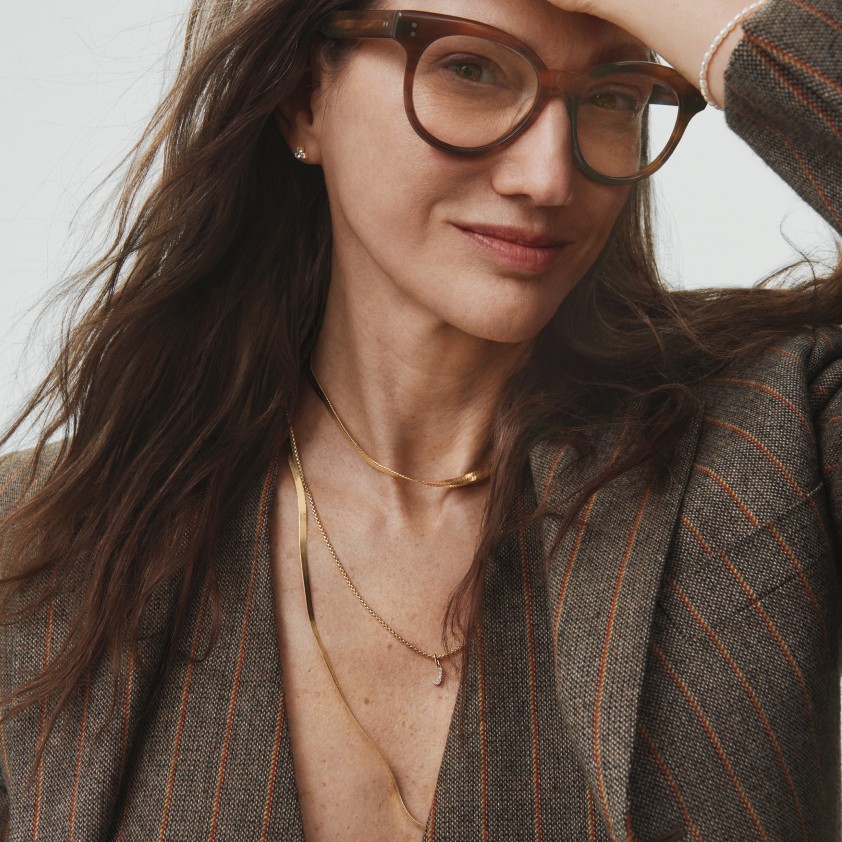
Doing things her Way : A Conversation with Jenna Lyons
No one has rewritten the rules of self-expression quite like Jenna Lyons. In collaboration with the style icon, we designed three new pieces that symbolize autonomy, strength and individuality, bringing together four boundary-breaking women showing the world just what it means to do things your way.
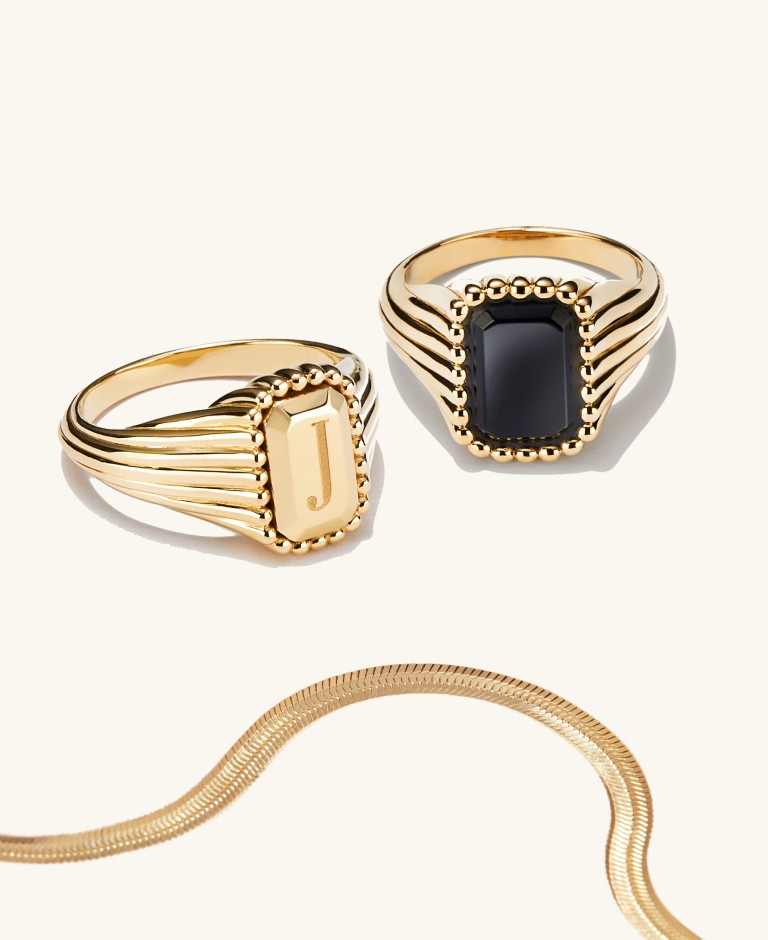
As your destination for styling all things fine jewelry, we’re certain you’ve come across the influence of Jenna Lyons throughout your journey. Throughout a decades-long career spent rewriting the rules of self-expression—from J.Crew to HBO to her latest venture into inclusive beauty as the founder of her eyelashes brand LoveSeen—Lyons has embodied what it looks like to dress for oneself, no if’s, and’s, or but’s about it. Despite being most well-known for her unforgettable personal style, it’s actually—in her words—both an innate and unusual thing to talk about.
"It's nice to feel like at my age [I’m] Getting a second chance to kind of reinvent who I am and how I show up in the world. That's kind of amazing."
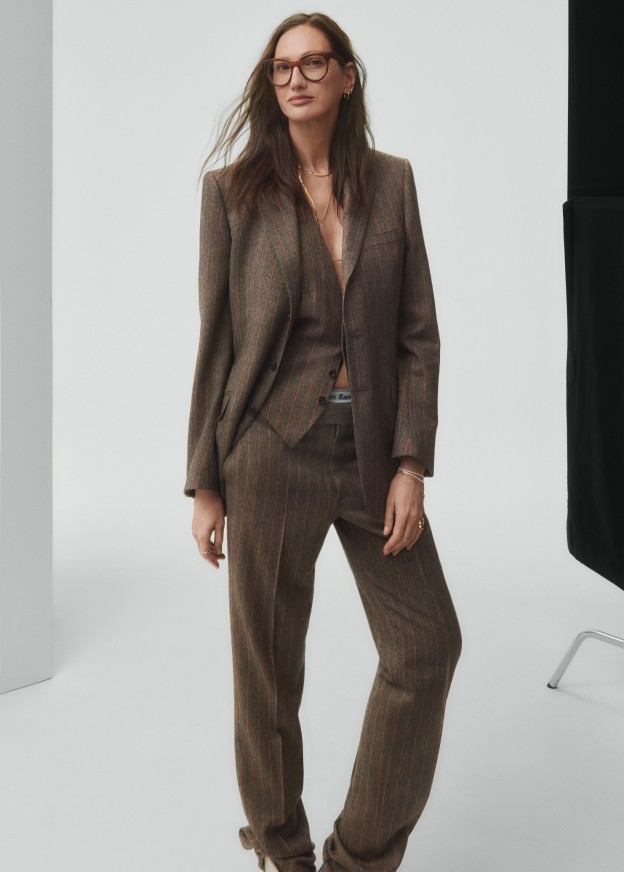
It’s why there was no better partner to help us design three key pieces for International Women’s Day all worthy of becoming your style signatures: two signet rings and a remixed herringbone chain.
Lyon’s hand-drawn font inspired the engravable initial for our signet pinky ring. The second ring, set with black onyx, is a bold statement piece with deep meaning. And, since no jewelry collection is complete without a go-to chain, there’s a low-hanging Jenna Lyons Herringbone Chain, too. During our previous campaign, she connected two of our herringbone chains to create an extra long version: “Because I, oftentimes have things a little low, which I've been known for. And so… I like a little drama.” (We do, too.)
And to pay that message forward, we’re donating $5 from the sale of each piece in the Mejuri x Jenna Lyons collection to the Mejuri Empowerment Fund. Lyons recently led the creative direction of our campaign shoot where we spoke about her affinity for signet rings, what International Women’s Day means to her and how it feels to reinvent how she uses style to show up in the world.
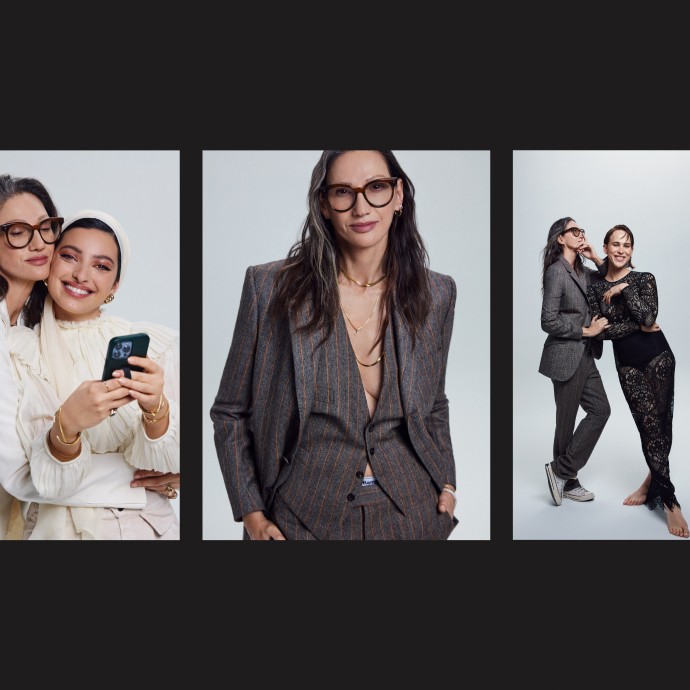
Jenna Lyons shares a moment on set with Noor Tagouri and Tommy Dorfman; wearing the Jenna Lyons Herringbone Chain, Round Box Chain Necklace, Diamond Letter Pendant and Lotus Studs
You’re known for your iconic style. How would you describe it?
It's funny, I think style is such an unusual thing to talk about. I don't think about it that much. I usually go for what just feels comfortable and what I want to wear…that's such a hard question to answer.
I have to say, I really don't think about style in the way that one might expect. To me, it's sort of innate and secondary, honestly. I think much more about: Are my teeth clean? Am I going to have a nice smile? And who am I going to hug?
Tell us about the design. Why a signet pinky ring?
I like the history of the signet ring. They were originally designed for an actual signature, so they often had a family crest or initials that really bore the name or bore the family's origins. My father had his family crest on a ring and so did his grandfather. It was something I saw that was very common and traditionally [worn by] men.
I like the idea that it's now for anyone and that [they] can own their signature. It's not about power, necessarily, to me, but it's about identity: having something that sort of says who you are, where you came from or what your name is, I think, is important. I really like that. It's sort of staking your claim.
Tell us about the significance of International Women's Day to you.
The fact that we need to have an International Women's Day gives me a little bit of pause. I remember distinctly in my career when people were saying Well, how do you feel having a job like this as a woman? And I'm like, Well, what difference does it make? How do you balance career and childcare? No one asks that to a man.
While I appreciate the focus on women, what I think is most important is that we're really focusing on all women. There has been a lot of change in this country in the past couple of years and I feel like some of it is really good and some of it is bad. I think honoring and respecting the range of what we see for women and really highlighting that there's a lot of different ways that women come to the table and I want them all to feel welcome. I want people from all races, creed, ethnicities, and sexual orientations to feel welcome at the table.
What's the inspiration behind the campaign?
One of the things I've loved about Mejuri from the very beginning is that the team is predominantly women. When we initially started speaking about how to approach the campaign, we talked about having a female photographer, which we were super excited to get Cass Bird. I know one of her real incredible attributes is that she's able to sort of get the essence of people and really find who they are and meet them where they are, as opposed to kind of placing a frame around them.
What was the intention behind the creative direction of the campaign?
We had a lot of conversations about having people feel really in their skin and having somewhat of a self-portrait of how they see themselves. Particularly, as we were looking at styling, [we wanted] each person to feel like themselves and not like we're putting a style on them, so to speak. How do they want to look? How do they want to feel beautiful? How do they want to own the camera and the space, as opposed [to feeling like] the campaign is trying to shape you. This is really about letting them shine through and [capturing] how they like to feel.
Was there ever a pivotal moment in your life in which you followed your gut, were true to yourself and truly did things your way—even if it meant breaking the “rules”?
When I was looking to get into fashion, it was a very different time. There was no internet, no Instagram, no Project Runway. And the only school that had any avenue towards fashion was Parsons. I was introduced to Parsons by my drawing teacher who gave me a book called Antonio's Girls and, back then, I had never seen anything like it. Antonio Lopez was an incredible illustrator. But what was amazing to me was that he drew women who didn't look like the women that I'd seen. I lived in California and the only ideas of beauty I had seen were the Baywatch girls: blonde hair, blue eyes, big boobs, tan... That was what I thought beauty was. Here, Antonio Lopez was highlighting women like Grace Jones and Tina Chao and Jerry Hall and Marisa Berenson.
They were all completely different. None of them fit into that mold of what I thought beauty was. And that really ignited something for me, wanting to be a part of a world that just felt so much more inclusive. Not that it necessarily was, but at least I believed that and I wanted to be a part of that.








